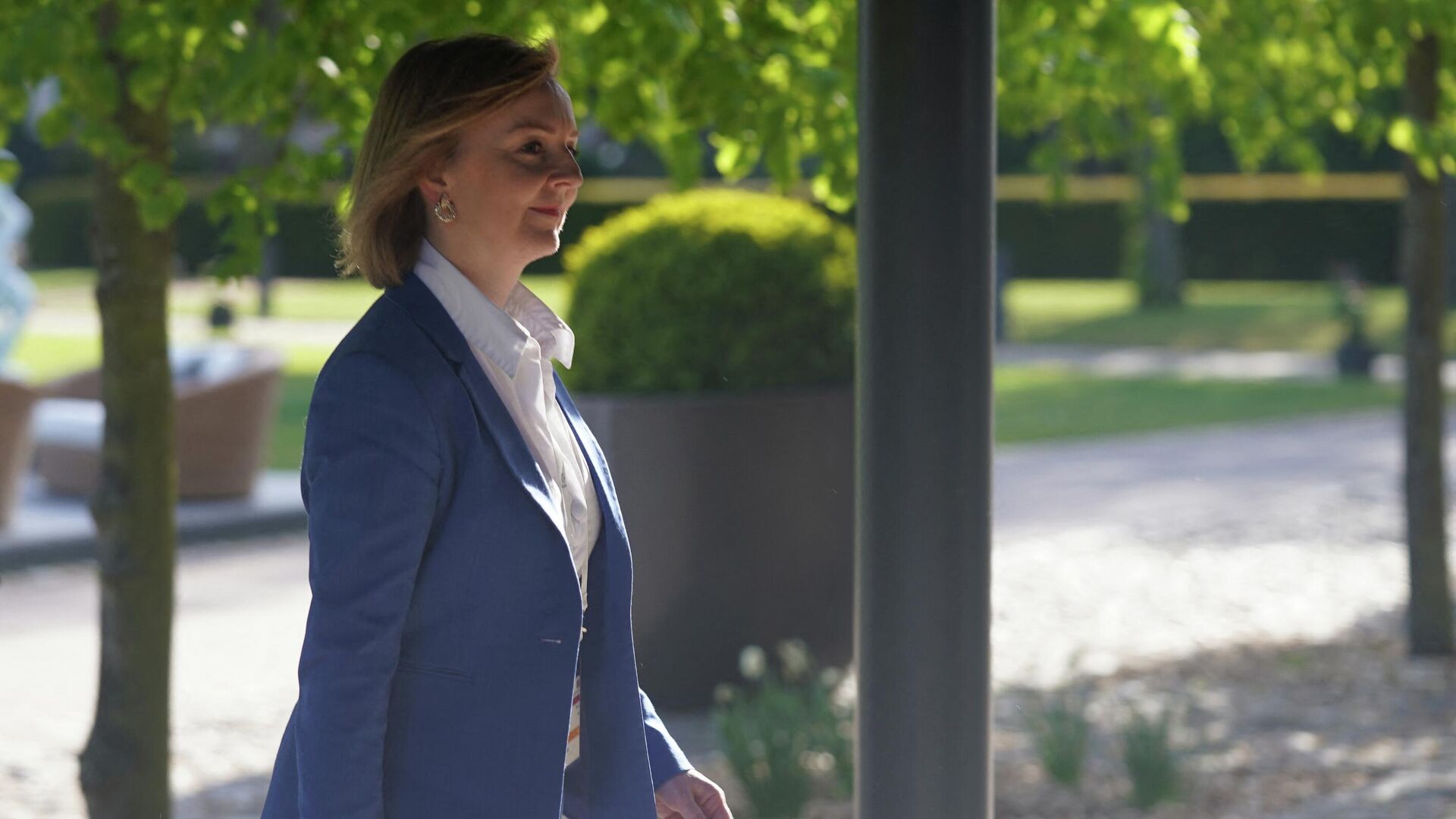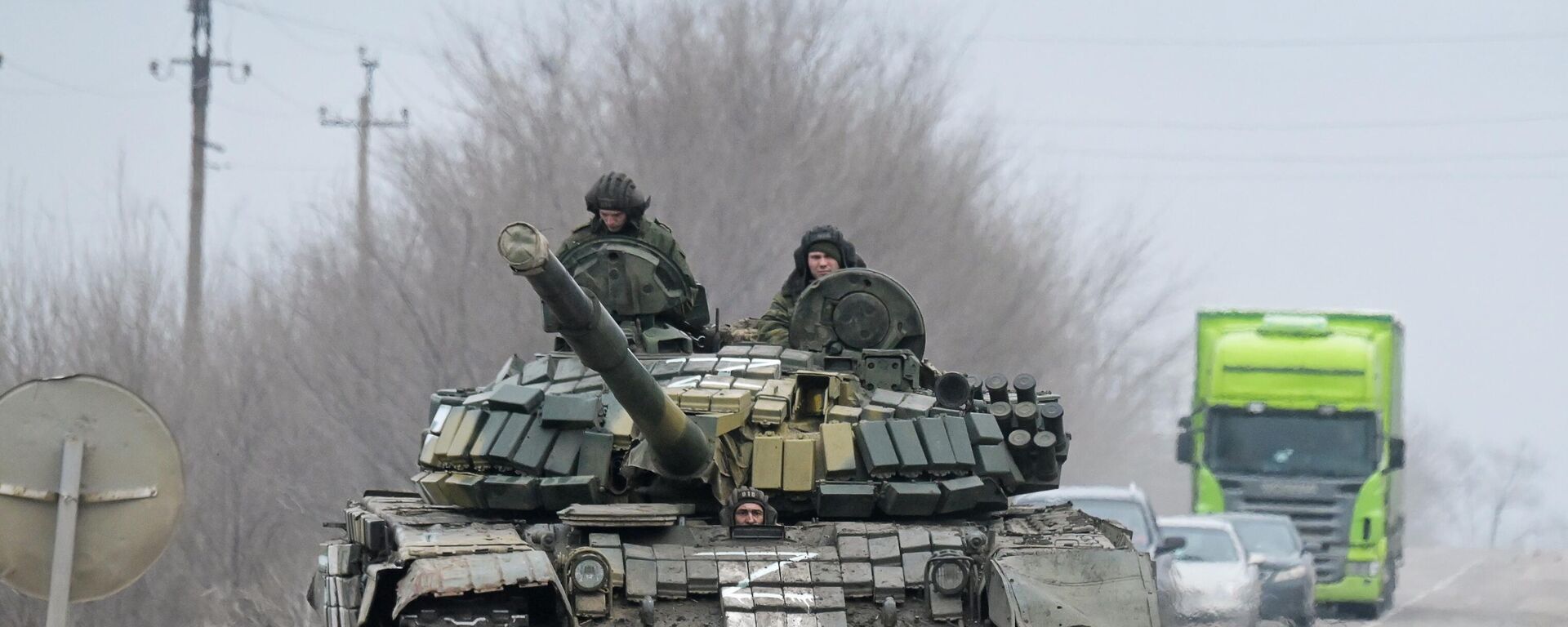NATO & UK Mulling Pumping Up Moldova With Bloc's Standard Weapons, Same as Ukraine
02:59 GMT 21.05.2022 (Updated: 15:19 GMT 28.05.2023)

© AFP 2023 / MARCUS BRANDT
Subscribe
After the start of the Russian special military operation in Ukraine in late February, security issues for some countries that have so far maintained neutrality towards NATO have become vivid. However, Moldova, with its breakaway Transnistria, sparked some fears about the frozen conflict reigniting in the former Soviet republic.
The UK has begun talks with its international allies about delivering sophisticated weaponry to Moldova amid the ongoing reshaping of the European security system, the country's Foreign Secretary Liz Truss said.
In a Friday interview with the Telegraph, the foreign secretary said that she would like to see the country, which is located to the south-west of Ukraine, "equipped to NATO standard."
The statement comes against the background of Moldova not being a member of NATO and the consistent fears that the ongoing conflict in Ukraine could spill over into the territory of other regional countries, especially those that also have political contradictions and examples of separatism.
"I would want to see Moldova equipped to NATO standard. This is a discussion we’re having with our allies," Truss said. "Putin has been absolutely clear about his ambitions to create a greater Russia – and just because his attempts to take Kiev weren’t successful it doesn’t mean he’s abandoned those ambitions."
Apart from reorganizing the military and defense of Moldova, citing Russia's alleged "possible aggression" towards it, the primary goal for the UK, according to Truss, is Ukraine and bringing its army to the standards of the North Atlantic alliance.
To that end, the UK, the United States, France, and Germany are reportedly discussing whether to sign a security guarantee for Ukraine to continue providing weaponry and support in the long run.
"What we’re working on at the moment is a joint commission with Ukraine and Poland on upgrading Ukrainian defences to NATO standard," Truss told the outlet. "So we will scope out what that looks like, what the Ukrainians need. The question then is how do you maintain that over time?"
The foreign secretary wondered, however, how exactly the UK and its allies were going to maintain that Kiev "is permanently able to defend itself and how do we guarantee that happens?" She indicated that such a topic was the focal point of talks recently.
"And that also applies to other vulnerable states such as Moldova," she said. "Because again, the threat is broader from Russia, we also need to make sure that they are equipped to NATO standards.”
NATO would give weapons to Moldova to replace Soviet-era equipment, as well as training for Moldovan military personnel, if the military alliance agrees on the matter, according to the report.
Following a series of recent explosions in the breakaway region of Transnistria, Moldova's authorities warned that the country was facing "a very dangerous new moment," and that forces were attempting to stir tensions. Still, the nation's President Maya Sandu said late last month that the explosions in Transnistria were connected with the internal struggle in the republic, and not with the attempts of external forces to involve the country in a war.
However, these fears are fueled, among other things, by the statements of Kiev itself, where not just militants from the nationalist battalions, but also an adviser to the presidential office have stated recently that Ukraine was ready to occupy Transnistria, "if there will be a request for it."
Earlier this week, French President Emmanuel Macron, in a meeting with Sandu, said the crisis in Ukraine could expand to Moldova.
"The Russian invasion of Ukraine poses a threat to the stability of the whole region, especially for Moldova. The recent incidents in Transnistria show that the spread of the conflict to the neighboring countries is not ruled out. France is closely following the security situation and all the attempts to infringe on the stability, sovereignty and territorial integrity of Moldova," Macron said.
Fears that Moldova and Transnistria could be sucked into the Ukraine crisis are growing. Pro-Russia separatists have ruled the primarily Russian-speaking territory of eastern Moldova since 1992, following a brief war in which Moscow intervened on the insurgents' side.
Transnistria, which has a Russian and Ukrainian majority, has been attempting to separate from Moldova since the dissolution of the Soviet Union, fearing Moldova's integration with Romania. Transnistria established a de facto independent state in 1992, following a failed attempt by Moldovan authorities to resolve the problem by force.

